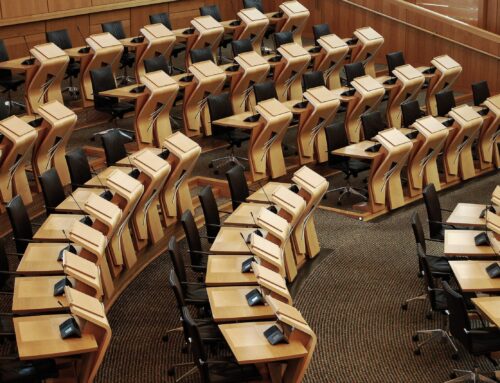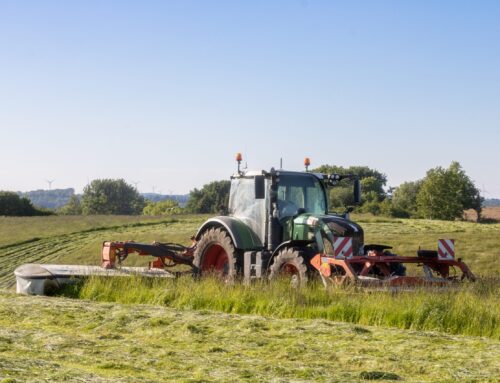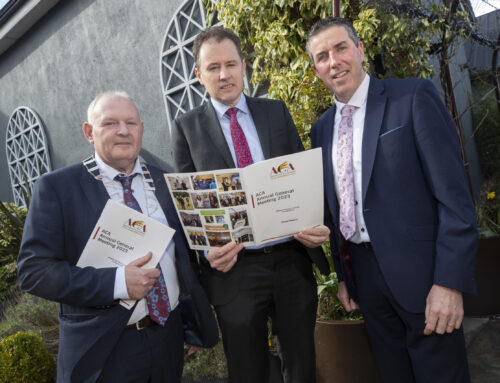Looking back through the (short) archives of Agri Insider, it’s hard to imagine how little has changed since this opinion piece was penned.
Written in the context of post-beefstrikes and the setting up of Beef Market Task Force, it argues that history is repeating itself.
The taskforce seems to be in a world of stalemate, sidelined by the excuse of Covid while the rest of the world adapted and got on with it. Some might suggest that the beef taskforce is trying to outwinter the storm of 2019.
On that basis, here is the penmanship of Seamus Maye. It makes for interesting reading.
What Now for Beef Producers?
Seamus Maye gives his opinion on the similarities between the 2000 Independent Group report and the recently set-up Beef Market Task Force and asks does it offer any hope to farmers?
As the Beef Task Force commences its deliberations, can farmers have any confidence that a real and meaningful outcome can be delivered? Having spoken with hundreds of beef producers since the infamous Kildare Street Agreement [KSA] was signed on September 15th 2019, the overriding feeling is one of pessimism. Virtually every mention of “Task Force” is met with the words “Talking Shop”.
My straw polls on the Kildare Street Agreement show that a significant majority of farmers from across the various representative groups are unhappy with the agreement reached. So, what are the prospects for the Task Force?
Let’s go back twenty years, to January 26th, 2000 to be precise, when then Tánaiste and Minister for Enterprise, Trade and Employment, Mary Harney convened an “Independent Group to report on anti-competitive practices in the Irish Beef Sector”. The Independent Group consisted of: –
Ø Secretary General, Department of Agriculture and Food, John Malone
Ø Assistant Secretary General, Department of Agriculture and Food, Tom Moran
Ø IFA President, Tom Parlon
Ø IFA General Secretary, Michael Berkery
Ø Chairman of IFA Beef Committee, Raymond O’Malley
Ø Chairman of Irish Meat Association, Tom McAndrew
Ø Chief Executive of Irish Meat Association, John Smith
Ø Kildare Chilling Managing Director, Tom MacParland
Ø Dawn Meats Managing Director, Dan Browne
Ø Kepak Managing Director, Liam McGreal
Ø ICMSA President, Frank Allen
Ø ICOS, John Cunningham, also Dairygold
Ø An Bord Bia Chief Executive, Michael Duffy
Ø Enterprise Ireland, Mike Feeney
Ø SIPTU, John Kane
Ø Teagasc, Donal Carey
Ø Minister Walsh’s Personal Advisor Paddy Moore
Unsurprisingly, the Independent Group concluded: – “We have found no evidence of anti-competitive behaviour either in the pattern of cattle prices or in profits”. The group then made the following recommendations: –
- That an annual census of the economic performance of the food and drinks industry, as has been carried out in Northern Ireland since 1989, be initiated in the Republic.
- That the Minister for Agriculture, Food and Rural Development should bring forward proposals designed to modernise the meat inspection system.
- That the status of collective negotiations, as sought by the farming organisations in the dispute that led to our Inquiry, be clarified in the context of Section 4 (1) of the Competition Act 1991 and Article 81(1) of the Treaty of Rome.
- That every means be used to promote integrated action in the food industry where farmer, processor and retailer work in harmony to meet consumer requirements. We support the efforts of An Bord Bia in this regard.
The conclusions twenty years ago bear a striking resemblance to the thrust of last month’s Kildare Street Agreement. Twenty years have passed and not one iota of progress has been made in terms of adjusting the market power deficit suffered by primary producers. Instead, there has been a tsunami of consolidation across the processing, retailing and co-operative / corporative sectors in the interim which has further weakened the lot of beef farmers.
Even while the Independent Group was deliberating, the Government, Department of Agriculture and Processors were planning a massive consolidation of the processing sector through BIDS (Beef Industry Development Society) which was ultimately found by the European Court of Justice to be in breach of Article 101 (1) TFEU. The ECJ (European Court of Justice) had this to say regarding the BIDS arrangements: –
“An agreement with features such as those of the standard form of contract concluded between the 10 principle beef and veal processors in Ireland, who are members of Beef Industry Development Society Ltd, and requiring, among other things, a reduction in the order of 25% in processing capacity has as its object the prevention, restriction or distortion of competition within the meaning of Article 101 (1) TFEU.”
Twenty years on, the Kildare Street Agreement is vague and aspirational and fails to deal with several elephants in the room, especially the wholly dysfunctional regulatory regime which forms the backdrop to the current Beef Crisis (I wrote about this in the first issue of Agri Insider). The KSA includes the immediate commissioning of two independent reports and a summary of competition law issues as relevant to the Irish Beef Sector, a proven recipe for yet more stagnation and obfuscation.
Since the current Beef Crisis erupted, the popular narrative has been “we cannot talk about price”. Why not? These references to price are of course references to Section 4 of the Irish Competition Act and Article 101 of TFEU. Of course we can talk about price, especially artificially low prices that are being imposed on a section of the value chain (primary producers) that is devoid of bargaining power, while other links in this value chain manage to make very significant returns. Who is kidding who? There is clearly market distortion.
There is no mention at all of Section 5 of the Irish Competition Act and Article 102 of TFEU, both of which deal with Abuse of Dominance, nor indeed of Article 45 (Directive Principle) of the Irish Constitution. It is worth having a perusal of an extract from both Section 5 and Article 45: –
Section 5 (1) Any abuse by one or more undertakings of a dominant position in trade for any goods or services in the State or in any part of the State is prohibited.
(2) Without prejudice to the generality of subsection (1), such abuse may, in particular, consist in: –
- a) directly or indirectly imposing unfair purchase or selling prices or other unfair trading conditions,
- b) limiting production, markets or technical development to the prejudice of consumers,
- c) applying dissimilar conditions to equivalent transactions with other trading parties, thereby placing them at a competitive disadvantage,
- d) making the conclusion of contracts subject to the acceptance by other parties of supplementary obligations which by their nature or according to commercial usage have no connection with the subject of such contracts.
Article 45, Irish Constitution – Directive Principles of Social Policy
- The State shall, in particular, direct its policy towards securing: –
(i) That the citizens (all of whom, men and women equally, have the right to an adequate means of livelihood) may through their occupations find the means of making reasonable provision for their domestic needs.
(ii) That the ownership and control of the material resources of the community may be so distributed amongst private individuals and the various classes as best to subserve the common good.
(iii) That, especially, the operation of free competition shall not be allowed so to develop as to result in the concentration of the ownership or control of essential commodities in a few individuals to the common detriment.
(iv) That in what pertains to the control of credit the constant and predominant aim shall be the welfare of the people as a whole.
(v) That there may be established on the land in economic security as many families as in the circumstances shall be practicable.
Few will argue that the four in-spec bonus criteria have as their effect, the manipulation and distortion of the market. It matters not whether the object of these rules is to manipulate markets or to produce a better product, the effect is clear. No counter measures were put in place to offset these anti-competitive effects. A properly functioning Competition Authority would long since have tackled this and other abuses. Ironically, twenty years ago, former Competition Authority Chief, Mr. Patrick Lyons wrote to the Independent Group as follows: –
“the matter is further complicated by the fact that the unilateral imposition of purchase prices for cattle by meat factories, either individually or collectively, without negotiation with suppliers, might constitute the abuse of a dominant position, which is prohibited by Section 5.1 of the 1991 [Competition] Act.”
Why are these micro-economic distortions and the other macroeconomic issues being shimmied up a side road, signposted Task Force, while the CCPC and ODCE remain asleep at the wheel? Why have successive governments failed to bring in legislation enshrining Article 45 into law?
Where does all this leave the Task Force and indeed Government? When one looks back at Mary Harney’s Independent Group, isn’t it curious that the Competition Authority wasn’t charged with producing the Report on Anticompetitive Practises in the Beef Sector back then? One could be forgiven for believing that the Independent Group was just a ploy to appease primary producers and get them off the Government’s back.
Fast forward twenty years and it seems that nothing has changed. It is difficult not to conclude that history is repeating itself and that the Beef Task Force is just another Government created Talking Shop designed to deflect criticism and preserve the status quo.





